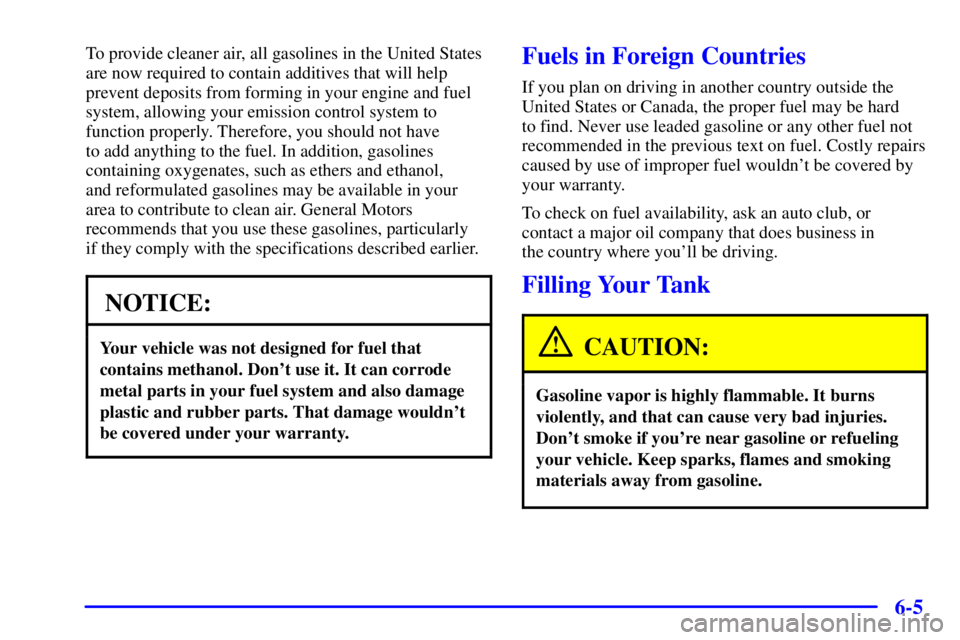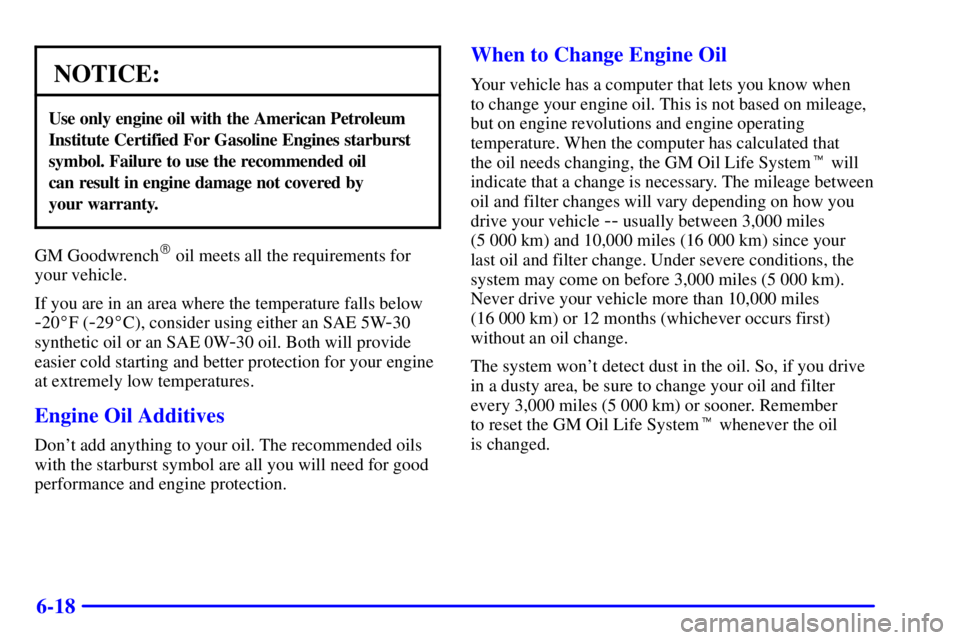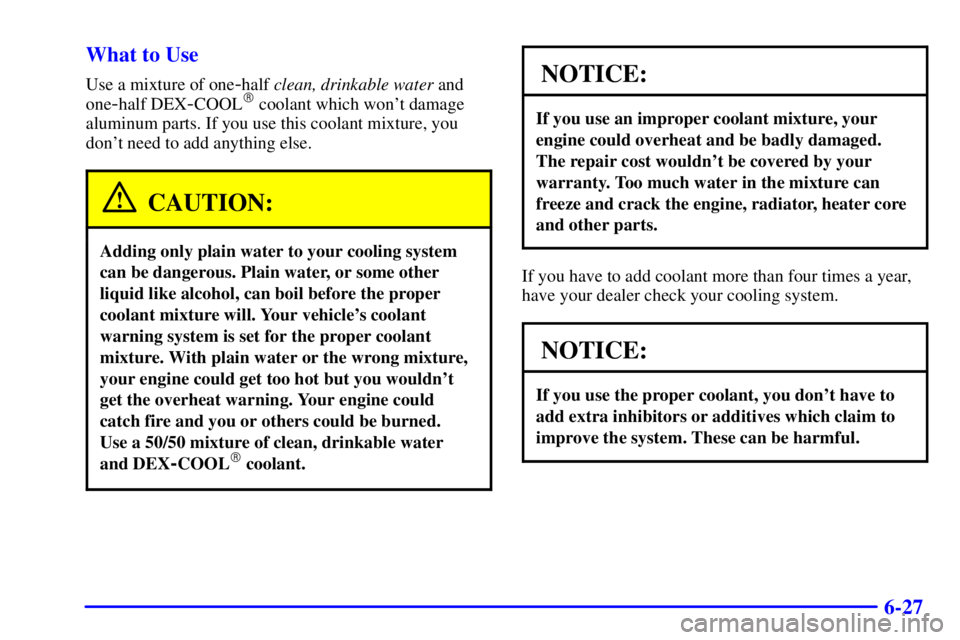Page 267 of 373

6-5
To provide cleaner air, all gasolines in the United States
are now required to contain additives that will help
prevent deposits from forming in your engine and fuel
system, allowing your emission control system to
function properly. Therefore, you should not have
to add anything to the fuel. In addition, gasolines
containing oxygenates, such as ethers and ethanol,
and reformulated gasolines may be available in your
area to contribute to clean air. General Motors
recommends that you use these gasolines, particularly
if they comply with the specifications described earlier.
NOTICE:
Your vehicle was not designed for fuel that
contains methanol. Don't use it. It can corrode
metal parts in your fuel system and also damage
plastic and rubber parts. That damage wouldn't
be covered under your warranty.
Fuels in Foreign Countries
If you plan on driving in another country outside the
United States or Canada, the proper fuel may be hard
to find. Never use leaded gasoline or any other fuel not
recommended in the previous text on fuel. Costly repairs
caused by use of improper fuel wouldn't be covered by
your warranty.
To check on fuel availability, ask an auto club, or
contact a major oil company that does business in
the country where you'll be driving.
Filling Your Tank
CAUTION:
Gasoline vapor is highly flammable. It burns
violently, and that can cause very bad injuries.
Don't smoke if you're near gasoline or refueling
your vehicle. Keep sparks, flames and smoking
materials away from gasoline.
Page 280 of 373

6-18
NOTICE:
Use only engine oil with the American Petroleum
Institute Certified For Gasoline Engines starburst
symbol. Failure to use the recommended oil
can result in engine damage not covered by
your warranty.
GM Goodwrench� oil meets all the requirements for
your vehicle.
If you are in an area where the temperature falls below
-20�F (-29�C), consider using either an SAE 5W-30
synthetic oil or an SAE 0W
-30 oil. Both will provide
easier cold starting and better protection for your engine
at extremely low temperatures.
Engine Oil Additives
Don't add anything to your oil. The recommended oils
with the starburst symbol are all you will need for good
performance and engine protection.
When to Change Engine Oil
Your vehicle has a computer that lets you know when
to change your engine oil. This is not based on mileage,
but on engine revolutions and engine operating
temperature. When the computer has calculated that
the oil needs changing, the GM Oil Life System� will
indicate that a change is necessary. The mileage between
oil and filter changes will vary depending on how you
drive your vehicle
-- usually between 3,000 miles
(5 000 km) and 10,000 miles (16 000 km) since your
last oil and filter change. Under severe conditions, the
system may come on before 3,000 miles (5 000 km).
Never drive your vehicle more than 10,000 miles
(16 000 km) or 12 months (whichever occurs first)
without an oil change.
The system won't detect dust in the oil. So, if you drive
in a dusty area, be sure to change your oil and filter
every 3,000 miles (5 000 km) or sooner. Remember
to reset the GM Oil Life System� whenever the oil
is changed.
Page 289 of 373

6-27 What to Use
Use a mixture of one-half clean, drinkable water and
one
-half DEX-COOL� coolant which won't damage
aluminum parts. If you use this coolant mixture, you
don't need to add anything else.
CAUTION:
Adding only plain water to your cooling system
can be dangerous. Plain water, or some other
liquid like alcohol, can boil before the proper
coolant mixture will. Your vehicle's coolant
warning system is set for the proper coolant
mixture. With plain water or the wrong mixture,
your engine could get too hot but you wouldn't
get the overheat warning. Your engine could
catch fire and you or others could be burned.
Use a 50/50 mixture of clean, drinkable water
and DEX
-COOL� coolant.
NOTICE:
If you use an improper coolant mixture, your
engine could overheat and be badly damaged.
The repair cost wouldn't be covered by your
warranty. Too much water in the mixture can
freeze and crack the engine, radiator, heater core
and other parts.
If you have to add coolant more than four times a year,
have your dealer check your cooling system.
NOTICE:
If you use the proper coolant, you don't have to
add extra inhibitors or additives which claim to
improve the system. These can be harmful.